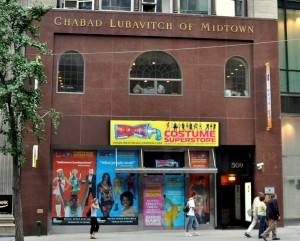
I admire singers who take other people’s songs and make them their own. Most lack the empathy to express the emotion in the words they may sing very well. In contrast, Johnny Cash and Mary Black and Frank Sinatra interpreted lyrics and melodies to give them new lives.
Rarer still are great covers – appropriations really – by first-rate songwriters. ‘That “Lovesick Blues” boy, Hank Williams’[1] didn’t write it. Not many people would guess it a much-recorded chestnut when he recorded it in 1948. But Williams, born in 1923 the year his signature song was written, owns it.
Lucinda Williams has covered two signature songs by two very different singer-songwriters. One has been covered often, the other very rarely. Save their writers, no one has ever done them as well as she.
‘Cold, Cold Heart’ (1951) was the first Hank Williams (no kin to Lucinda) song I learnt. Tony Bennett put the song on the pop charts in 1952 and has sung it ever since. As have a lot of people.
But no one since Hank has put it over the way Lucinda did. Her version is the one shining point on a compilation album, ‘The Village – A Celebration of the Music of Greenwich Village’ (2009).
There was a time when I believed that you belonged to me.
But now I know your heart is shackled to a memory.
The more I learn to care for you, the more we drift apart.
Why can’t I free your doubtful mind and melt your cold, cold heart.
Each long line Lucinda Williams makes stand alone. Each aches.
If I have no explanation for why ‘Cold, Cold Heart’ made such an impression during my first year of grade school. I do know why ‘Positively 4th Street’ (1965) defined my second year in university – and many years thereafter.
Nothing Bob Dylan had recorded – or anyone else – said so clearly what I was feeling. It’s the ultimate ‘Screw you!’ that none of us had the balls to say aloud – Dylan’s point. But how we felt it!
Even if the title didn’t refer to New York – 4th Street is in Greenwich Village where Dylan lived – it’s the outsider’s response to City’s life. In it I can feel the wastes, the plain talk of northeast Minnesota. Perhaps that’s why Lucinda Williams’s Louisiana twang suits the song so well.
Her cover is again on a compilation, ‘In Their Own Words – vol. 1‘ (1993), and it is in superb company. A must own, ‘In Their Own Words’.[2]
It’s easy to take ‘Positively 4th Street’ as the most straight forward of 1960s Dylan, the only question being who the ‘he’ is.
Do you take me for such a fool
To think I’d make contact
With the one who tries to hide
What he don’t know to begin with
But it isn’t straight forward at all.
Dylan sets up his punch line – and a punch it is – the way a Borscht Circuit comic, like George Burns or Jackie Mason, would tease his exit line. Here are his last two verses:
I wish that for just one time
You could stand inside my shoes
And just for that one moment
I could be you
Yes, I wish that for just one time
You could stand inside my shoes
You’d know what a drag it is
To see you
The unspoken ‘screw you’ works as well on the 5000th listen as on the first because Dylan has made us wait for it, anticipate it like the bitter center of chocolate cherry.
But suppose ‘he’, in typical Dylan ellipticality, actually is ‘she’ – something I’ve thought since the fall of 1965.
Then, ‘Positively 4th Street’ becomes the cry of the man in his 20s who’s been betrayed – inexplicably, bafflingly – at the moment when women began to assert the same sexual privileges as men. I believed it THE male song of the 1960s, a song no woman could cover.
Until Lucinda Williams. With her expression, she drives home the sexual betrayal. Only now, the words fit. ‘He’, it is. The irony, the hurt, the speechlessness come together in a crushing twisted twang.
It’s one thing for a singer to take minor songs by other artists and make them something more than their writers could. Johnny Cash did it with Bruce Springsteen’s ‘Highway Patrolman’ and Nine Inch Nails’ ‘Hurt’, among many.
But to take songs from a singer/songwriter’s peak and give them fresh meaning is something else again. Lucinda Williams makes them thrilling anew.
Notes
1. The quoted phrase is from Williams’s standard Grand Ol’ Opry and WSM radio show introductions. ‘Love Sick Blues’ was a 25-year old standard when Williams recorded it.
2. Janis Ian’s reprise of ‘At 17′ would justify buying the CD, if Williams and others weren’t there, too.
Recent Comments